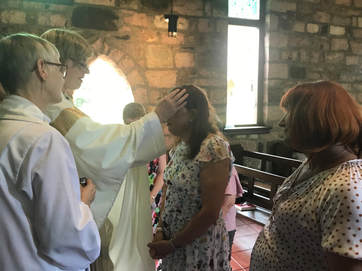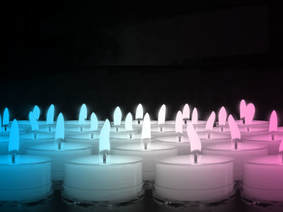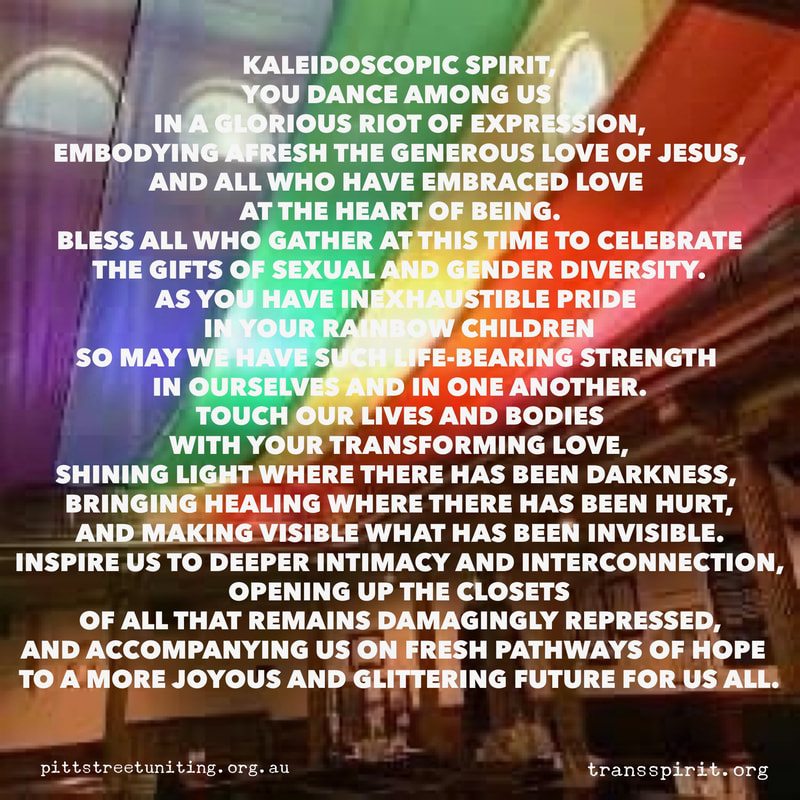|
As both a transgender woman and an experienced Anglican priest, it is highly disappointing to hear of the recent resolution of the Anglican Synod of Tasmania about what it calls ‘Biological Sex’. This betrays all the faults of what was a very late ‘motion without notice’: being ill-considered, under-informed and divisive, especially in its lack of attention to Anglican and other transgender people’s own well-substantiated experiences of faith and identity. For both Tasmania and the Anglican Communion are blessed with many wonderful transgender people who continue to enrich our communities and bring new life to others. What a difference it then makes when we are listened to and engaged constructively. For my own experience is that, in affirming rather than denying our authentic God-given (not human labelled) gender, transgender people are indeed so much more fully incarnate, at peace and flourishing in our skins, biology and divine purpose. Denying this not only helps maintain unnecessary suffering but restricts the love and joy we have to share within the Church and wider world. After all, St Paul (in 1 Corinthians 12) encouraged the Church, as the Body of Christ, to value its members that are weaker and shamed. This kind of action however feels more like being freshly beaten up and an attempt to cut off transgender members, our families and friends. That is not the message of God’s love that Christians have to offer the world.
The resolution also seems to reflect a recently constructed approach to the Bible which narrows God’s colourful and dynamic kaleidoscope of creation to simplistic black and white binary categories. This does not do justice to how mainstream Anglican theology has typically sought to value the rich and varied textures of the scriptures and the best of evolving human reason. Nor does it sit well with increasingly trans affirming developments in many Anglican dioceses, and other Christian congregations, schools, and agencies across Australia. I hope therefore that Anglican leaders in Tasmania will think again and not encourage their parishes, schools, and other agencies to take such an unhelpful path. The same Synod passed other resolutions making a continuing welcome commitment to addressing environmental challenges and supporting people with disabilities. These are just two of many ways in which Tasmanian Anglicans contribute positively to their communities. What a shame transgender people are not yet regarded as worthy of similar full respect and engagement. For neither trans people nor people of faith benefit from perpetuating today’s unnecessary culture wars, especially those of us who are both. Human beings have genuine differences but, as St Paul also put it, we are called to be one in Christ, in whom ‘there is no longer male and female’. We can be, and do, so much more together. The Revd Dr Josephine Inkpin was ordained in the Church of England in 1986 and has served in many capacities in Anglican dioceses in England and, since 2001, in Australia, as well as an officer of the National Council of Churches in Australia for several years. She is an associate lecturer in the University of Divinity, a member of the global network of Trans and Non-Binary Clergy of the Anglican Communion, and the current Minister of Pitt Street Uniting Church in Sydney.
1 Comment
A Prayer of Blessing for LGBTIQ+ Celebrations
by Josephine Inkpin, written for Sydney Mardi Gras 2022 Kaleidoscopic Spirit, You dance among us in a glorious riot of expression, embodying afresh the generous love of Jesus, and all who have embraced love at the heart of being. Bless all who gather at this time to celebrate the gifts of sexual and gender diversity. As you have inexhaustible pride in your rainbow children so may we have such life-bearing strength in ourselves and in one another. Touch our lives and bodies with your transforming Love, shining light where there has been darkness, bringing healing where there has been hurt, and making visible what has hitherto been invisible. Inspire us to deeper intimacy and interconnection, opening up the closets of all that remains damagingly repressed, and leading us along fresh pathways of hope to a more joyous and glittering future for us all.  ‘The Body doesn’t lie’, they say. Well, certainly it can powerfully reveal and prompt us to the truth. Years ago, for example, I remember a yoga teacher asking me to curl up into the foetal position and give myself a hug, expressing my love for myself. But I simply couldn’t manage it. I took up position, but my arms just wouldn’t do it. Even when I actively exercised my mind to give myself the appearance of a hug, my body would not obey. For you cannot simply command love. It has to be received, acknowledged, and embodied. Or, to put it another way, love has to be breathed in and breathed out. All of this takes us to the heart of Jesus’ teaching about the commandments (in Mark 12.28-34), and to the core of the Biblical tradition…  Some days we can glimpse why we were put on this earth. Yesterday was one such moving moment for me, as I led a short rite for a soul friend preparing for gender affirmation surgery. We made no extra special great fuss about this. Nor should we have to, for such signs of grace for LGBTI+ people are really very natural, if our world would but allow itself to know it. Yet it was profoundly significant in the journeys we are making at this time. For today's sea-change of understanding gender and sexuality not only brings healing and hope to specific individuals. It also offers vital hope and healing to tired aspects of our society, not least to religious groups and their members. In a profound sense it is thus sacramental: helping to reveal what has been hidden, opening up and helping to sustain fresh pathways of life and transformation. Our short rite yesterday was like that. It publicly honoured deep movements of life and spiritual wrestling which have not only been unacknowledged and unsupported, but often tragically dismissed and disastrously resisted. It also proclaimed that new life for all of us is to be found in the tender solidarity of us all, in the mystery of God's extraordinary and abundant grace and diversity. Our 'transgender' rite was just a small part of our usual Milton Anglicans Sunday parish eucharist. As such however, it was no 'hole in the wall' secret ceremony, but a truly grounded and open affirmation both of a remarkable sacred particular person and of our growing sense of what it means to re-create community and 'church' today. It felt like a renewing movement of spirit for our community, certainly for my own sense of priesthood, and a re-presentation of what it means to be differently ordered bodies together in the body of Christ. It also made us wonder why such things are not expected in the life of all spiritual communities...  What does remembering mean for gender diverse people and the body of Christ? I ask that question because, on this All Saints Day, we begin a period of remembrance in both church and world: not least of saints, heroes and role models; of loved ones departed; of the destruction of war; and (in the Transgender Day of Remembrance on 20 November) of transgender and gender diverse people murdered across the globe. My sense is that these things are not unconnected and that they come together because (whatever kind of spirituality we have) all human beings need some dedicated time and space in the cycles of the seasons to engage in what is the 'sacred' task of re-membering. November works, globally, for us all in this: for in the southern hemisphere it marks the drawing to the close of the working year and, in the northern, it marks the coming of the darkness of winter. Not for nothing have human beings also traditionally begun preparing for a mid or end of year festival of light and celebration (known variously but to most today as Christmas). To do that properly however - particularly where death, violence, loss, grief and/or family separation are still real - we need to re-member. So what truths, healing and fresh purpose are we seeking to affirm, and receive, in this, as gender diverse people?... |
AuthorThe Revd Dr Jo Inkpin: Archives
March 2024
Categories
All
|

 RSS Feed
RSS Feed